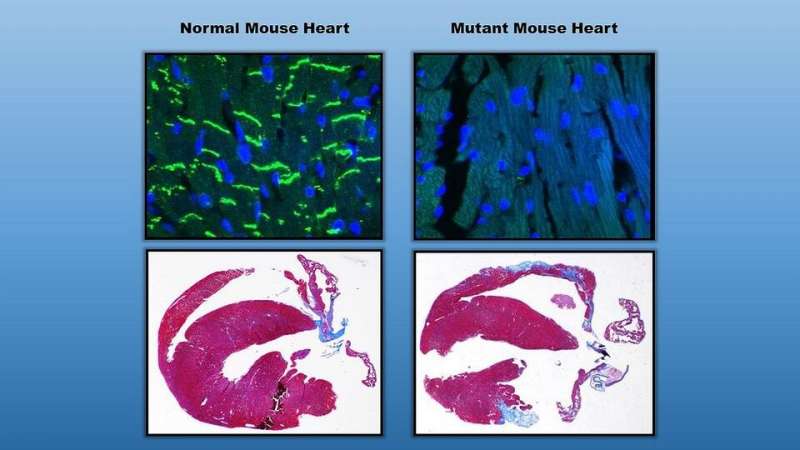Mental wellness may be important prevention factor for sudden death in genetic heart disease

Studying mice modeling a human genetic disease that causes irregular heartbeats and can lead to sudden death, Johns Hopkins Medicine researchers have shown that emotional stress seems to promote symptoms of the disease and worsens its progression. The researchers say in their study, published Nov. 24, 2020, in the Journal of Clinical Medicine, that physicians and patients would be wise to focus together on good mental health—in addition to traditional exercise avoidance—to keep patients healthy and avoid triggering symptoms.
“There’s much evidence that our body and mind are connected so that our psychological states can change the course of disease,” says Jacopo Agrimi, Ph.D., a research fellow in the laboratory of Nazareno Paolocci, M.D., Ph.D., associate professor of medicine at the Johns Hopkins University School of Medicine. “Prolonged stress may be like putting fuel on the fire in someone with a chronic disease. So, we need to ensure that we are taking patients’ quality of life and psychological wellness into account when managing their disease.”
The Johns Hopkins Medicine research study was conceived when the researchers heard anecdotal reports from patients at a seminar held as part of the Johns Hopkins ARVC/D Program.
Arrhythmogenic right ventricular dysplasia (ARVD), also known as arrhythmogenic right ventricular cardiomyopathy (ARVC), is a genetic heart condition and a leading cause of sudden death among young athletes, but it can affect people of all ages and all activity levels. ARVC/D was one of the diseases modeled by the mice in the study.
“Patients often reported that when they heard their defibrillator charging—which is needed to shock their heart beat back into normal rhythm when disrupted—they would panic due to past experiences resulting from the pain and discomfort of a defibrillator discharge,” says Stephen Chelko, Ph.D., an adjunct assistant professor of medicine at the Johns Hopkins University School of Medicine, as well as an assistant professor of biomedical sciences at Florida State University. “As a result, many people also reported waking up after the shock, hearing the defibrillator recharge and become panicked again, thus creating a viscous cycle.”
These patient stories led Chelko and Agrimi to survey patients with these genetic heart diseases about their stress levels during annual clinical follow-ups. They found that those with higher levels of perceived psychosocial stress showed a strong correlation with clinical symptoms as measured by cardiac magnetic resonance imaging or electrocardiogram.
With this knowledge, the researchers then took mice with the second most common genetic mutation for arrhythmogenic cardiomyopathy and put half of the group in stressful situations by exposing them to large, aggressive and bullying mice for weeks.
Almost a third of the mice with the genetic heart condition and placed in the stressful situation died of sudden death compared with the mice with the heart problem in non-stressful situations. The researchers also observed that the stressed mice who remained alive showed more cardiac damage and more rapid disease progression.
Source: Read Full Article


